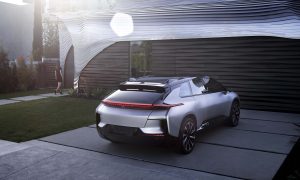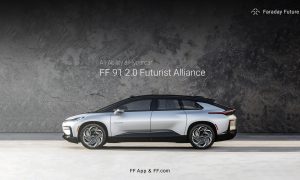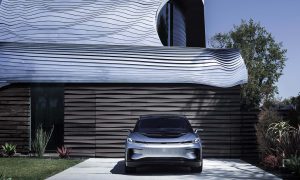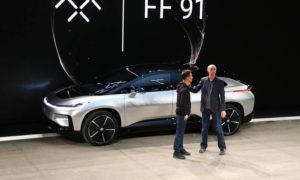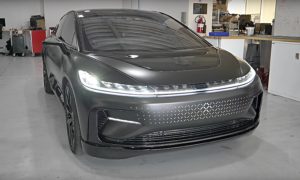News
Faraday Future announces new battery partnership with LG Chem
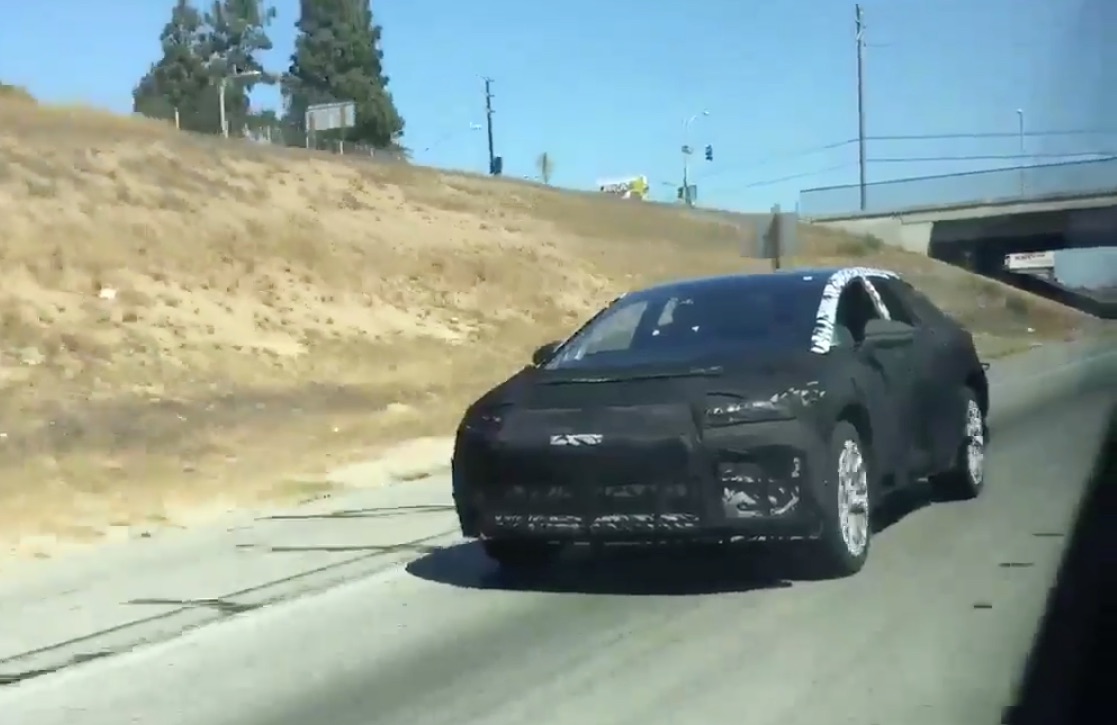
Faraday Future announced that it has entered into a partnership with Korea’s LG Chem that will supply batteries for its upcoming line of electric cars. “LG Chem worked closely with Faraday Future to develop a tailored cell chemistry to optimize the range and safety of our mass-production battery hardware,” said Tom Wessner, Faraday Future’s vice president of global supply chain in a statement. Faraday claims that together the two companies will make products that have the highest energy density of any production automotive battery available.
LG Chem is one of the largest automotive battery manufacturers in the world and currently supplies batteries for the Chevy Volt and Tesla Model 3 competitor, the 238-mile range Chevy Bolt. It also supplies batteries to Volvo, Hyundai, Kia, Renault, and Ford, according to data compiled by Inside EVs. Of particular interest to Tesla fans will be the long range Roadster 3.0 battery upgrade also made by LG Chem.
“As a leading supplier of automotive cells and batteries, we are proud to work alongside Faraday Future as we work together to create the next generation of electric vehicles,” said UB Lee, the President of Energy Solution Company, LG Chem. “Our progress so far represents a major step forward in battery technology, and we look forward to growing our partnership and co-developing hardware into the future.”
There was a rumor earlier this year that LG Chem was being considered as a possible source for the batteries that will power the upcoming Tesla Model 3, but those rumors were quickly squashed by both LG Chem and Tesla. Nevertheless, LG Chem makes 18650 battery cells — the basis for all Tesla battery packs to date — and is a company Tesla could turn to in the future to help supply batteries for its automotive and energy storage products if necessary.
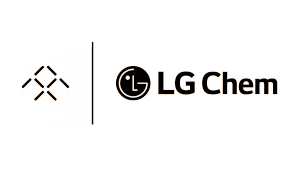
Faraday Future says the key to its cars will be its Variable Platform Architecture (VPA) which according to the company permits it to quickly build larger or smaller cars as the demands of the marketplace require. Faraday believes that having flexibility in design will allow it to respond more quickly than its competitors and allow for changes based on customer preferences.
Faraday test mules have recently been spotted on the roads in California. The cars are masquerading as conventional automobiles but have Faraday powertrains underneath. The testing will confirm parameters like range and durability of components. Just when Faraday plans to bring its first cars to the market is a closely guarded secret.
Spotted a #FaradayFuture car in the wild. Better than any Pokemon I've caught so far. Gotcha @FaradayFuture pic.twitter.com/Rh55t0ZtPX
— Paul Tao (@paultao) September 23, 2016
At the beginning of the electric car revolution, it was assumed that most car companies would manufacture their own batteries just as they always made their own engines. But the costs of keeping up with new technology soon became prohibitive and most automakers decided to let the battery companies do the heavy lifting. Today, Panasonic, LG Chem, and Samsung SDI are the dominant players in the field. With its new partnership with Faraday Future, LG Chem is hoping to keep slightly ahead of its competitors.
News
Tesla counters Saudi Arabia charging concerns with quick response
Tesla launched 24 new Superchargers in Saudi Arabia just one day after concerns arose regarding charging availability.
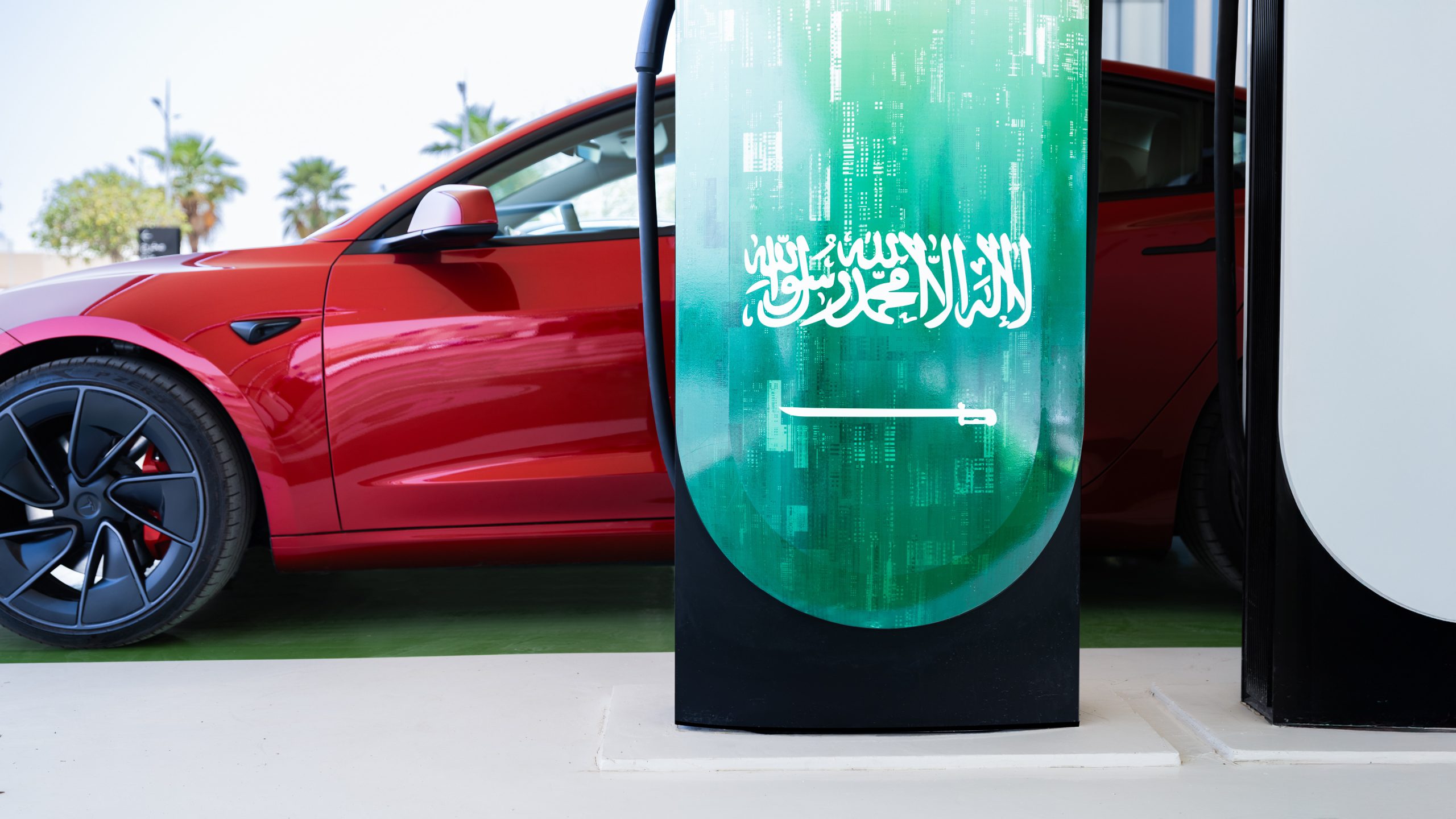
Tesla has countered concerns regarding the availability of electric vehicle chargers in Saudi Arabia with a quick response as it launched 24 Superchargers in the country’s most populated cities just one day after launching deliveries in the country.
Tesla announced that it was launching deliveries of the Cybertruck in Saudi Arabia, Qatar, and the United Arab Emirates on Thursday.
However, there were grave concerns about the availability of EV charging in the region, as Tesla had not built any Superchargers in Saudi Arabia, and there were only a small number built to begin with by other companies.
Tesla confirms Cybertruck will make its way out of North America this year
A report from Reuters earlier this week highlighted those challenges and concerns surrounding EV charging:
“As of 2024, Saudi Arabia had just 101 EV charging stations, compared with 261 in neighbouring United Arab Emirates, a country with a third the population, data from Statista based on Electromaps showed.
Most are in major cities, making long journeys across desert highways unfeasible.
‘I think charging is probably one of the main, if not the main, point of concern,’ said Carlos Montenegro, BYD’s general manager in Saudi Arabia, adding Saudi drivers clock up many more kilometres each year than in other markets.”
However, Tesla quickly responded by announcing the construction of 24 new Superchargers in Saudi Arabia:
🚨 Tesla has answered concerns about charging with its first Superchargers in Saudi Arabia!
24 total stalls is a great start! https://t.co/stQ5Q16GZK pic.twitter.com/rqTfjrivW3
— TESLARATI (@Teslarati) April 11, 2025
The chargers are installed in eights – Eight in Riyadh, eight in Jeddah, and eight in Dammam. However, these are not the only charging piles that Tesla plans to build in the Kingdom. It also announced plans to establish more in those three cities later this year, additional builds in the cities of Taif, Medina, and Buraydah next year, and the development of the Jeddah-Riyadh-Dammam highway.
This was a quick answer for the skeptics who were worried about charging, which was a valid concern. Tesla will continue to expand its Supercharger presence in the Middle East as it begins to deliver more vehicles. For now, this small rollout is a great start.
News
Tesla released the Cybertruck RWD to make the AWD look like a deal
Cybertruck LR RWD is effectively a $69,990 pickup that does not have 120V and 240V power outlets on its bed or 120V outlets in the cabin.
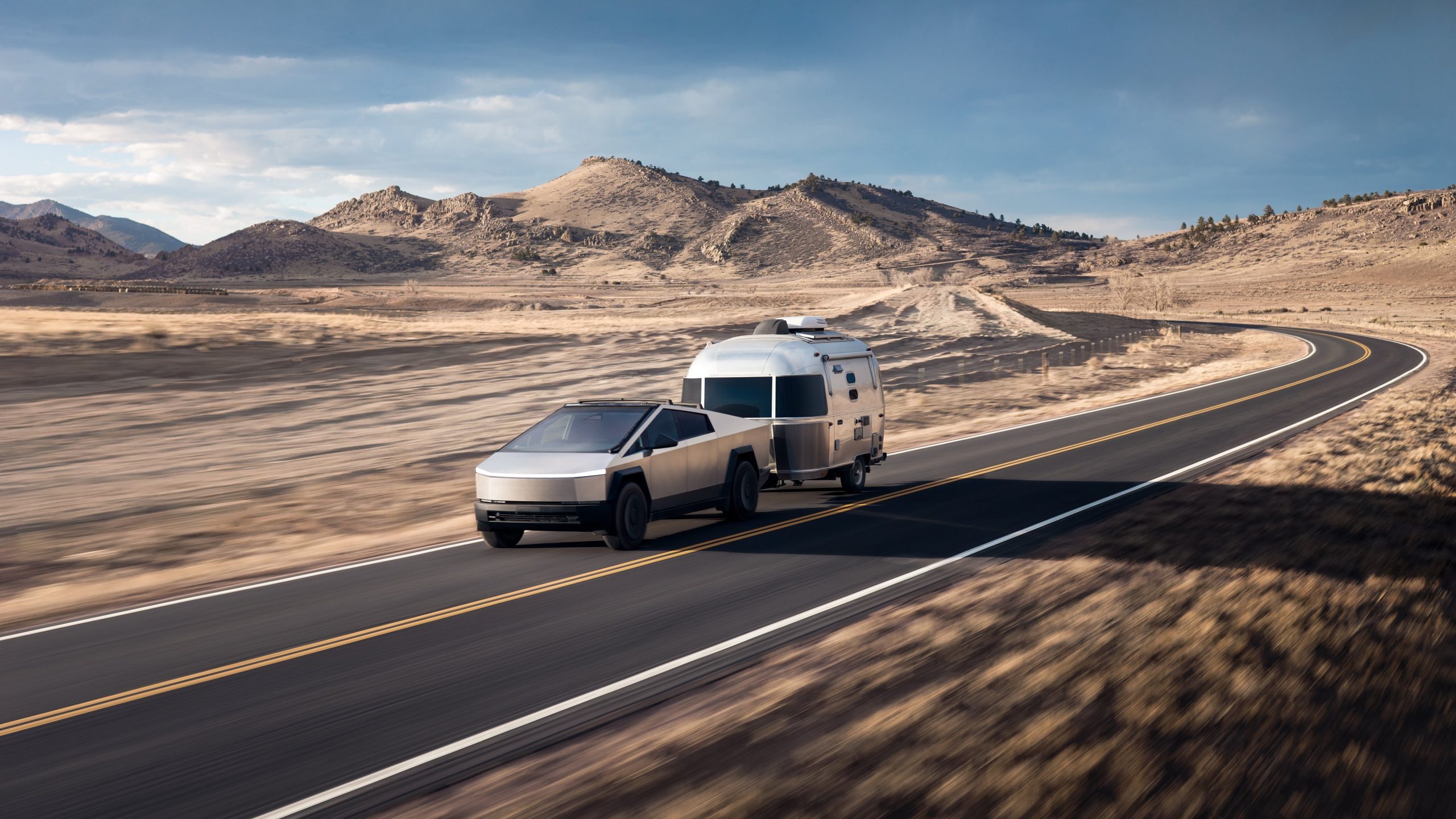
Tesla released the Cybertruck Long Range Rear Wheel Drive (LR RWD) recently, and it quickly received mixed reactions from the electric vehicle community. While the truck was praised for its long range, many argued that it was far too expensive due to the long list of features that it is missing compared to the Cybertruck All Wheel Drive (AWD), the mid-range variant of the all-electric pickup truck.
A look at the Cybertruck LR RWD’s pricing and features suggests that Tesla designed and priced the vehicle to push more buyers to opt for the Cybertruck AWD instead.
So Much Missing
The Cybertruck LR RWD costs $10,000 less than the Cybertruck AWD, but it is substantially less equipped compared to its mid-range counterpart. While the Cybertruck LR RWD’s slower 0-60 mph time, lower towing and payload capacity, textile seats, and fewer speakers are understandable, missing features such as the lack of air suspension, HEPA filter, and active noise cancellation make the vehicle truly a stripped down version of the all-electric pickup truck.
Considering that it is the most affordable Cybertruck available today, it would be fair to expect the vehicle to be geared for consumers who truly use their trucks for work. However, the Cybertruck LR RWD seems like a pretty expensive and under-equipped work truck, as it is effectively a $69,990 pickup that does not have 120V and 240V power outlets on its bed or 120V outlets in the cabin. It doesn’t even have otherwise basic Cybertruck features like the rear light bar, which is part of the pickup truck’s iconic, futuristic look.
Must Be Cheaper
The long list of missing features from the Cybertruck Long Range RWD has incited a lot of conversations among electric vehicle enthusiasts on social media, with some EV fans stating that the cost of the features that Tesla removed in the LR RWD seem to be worth far beyond $10,000. Others noted that with its (very) stripped-down nature, the Cybertruck Long Range Rear Wheel Drive should have been priced around $55,000, or at least closer to Elon Musk’s previous comments about electric pickup truck prices in the past.
Back in 2019, Elon Musk noted during an interview on the Ride the Lightning podcast that he believes consumers should be able to purchase a decent electric pickup truck for less than $50,000. “You should be able to buy a really great truck for $49k or less,” Musk stated then.
The Cybertruck was ultimately unveiled in November 2019 with a starting price of $39,990. If one were to adjust for inflation, Elon Musk’s sub-$50,000 Cybertruck price estimate would be worth $62,811 today, which is roughly the price of the Cybertruck LR RWD with the federal tax credit. For context, the Cybertruck’s $39,990 base price during its November 2019 unveiling is worth $50,249 today if adjusted for inflation.
A Boost to Cybertruck AWD
One would not be faulted to speculate that Tesla released the Cybertruck Long Range Rear Wheel Drive as a way to encourage customers to purchase the more expensive Cybertruck All Wheel Drive. For just $10,000 more, after all, customers would be getting a substantially better-equipped vehicle with better performance and far more utility.
It remains to be seen how well the Cybertruck LR RWD would sell, though considering its stripped-down nature, there seems to be a chance that the variant would follow the same path as the $35,000 base Model 3 Standard Range RWD, which was briefly sold but eventually retired due to low orders. What the $35,000 Model 3 did, however, was push a lot of sales of the Model 3 Standard Range Plus, which ultimately became one of Tesla’s volume sellers and is still in production today simply as the Model 3 RWD.
News
RBC cuts Rivian price target to $10 ahead of earnings report
Rivian hit 8.6K deliveries in Q1 2025 and reaffirmed targets. RBC cut its price target, all eyes are on May 6 for Rivian’s earnings call.
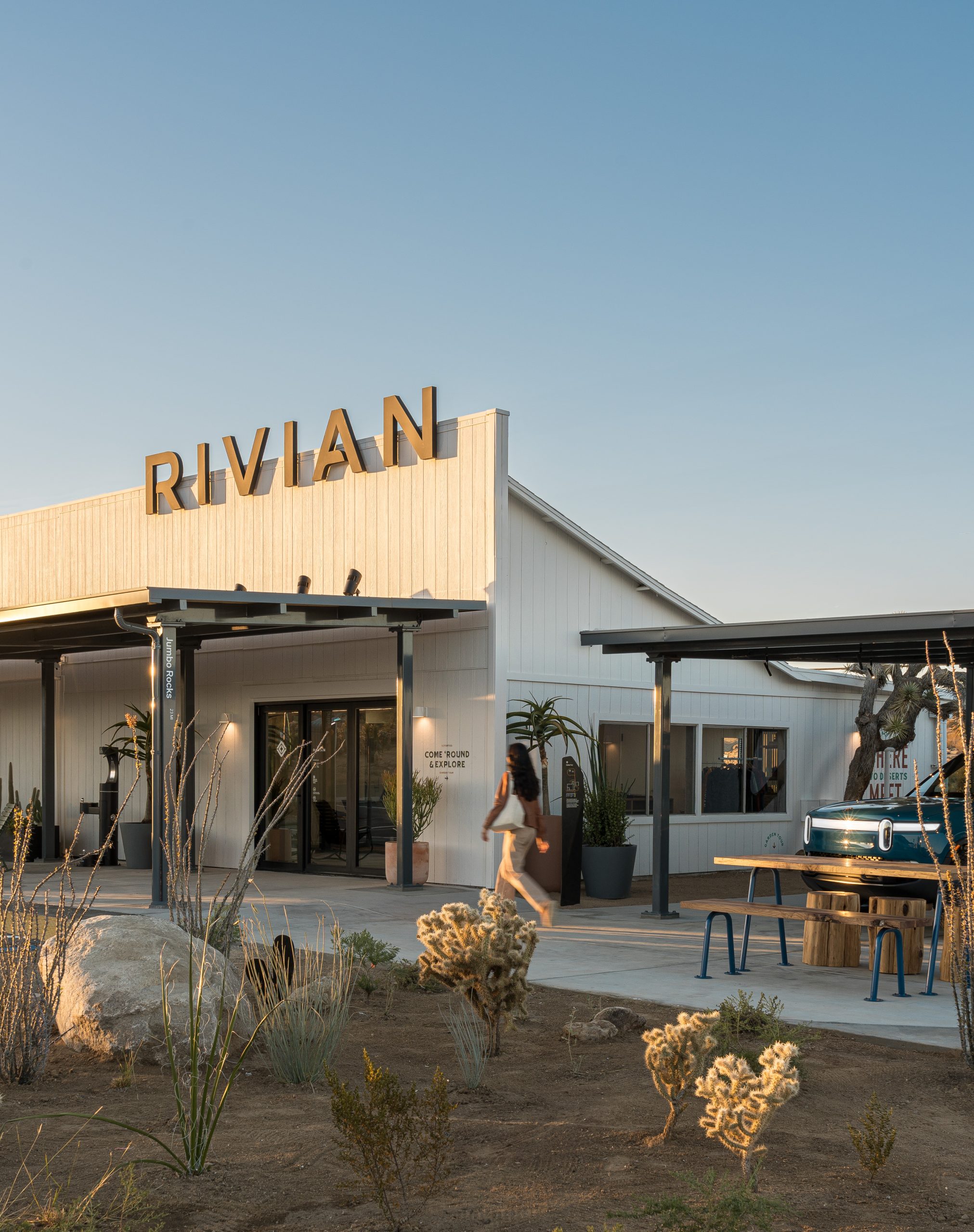
RBC Capital cut its Rivian price target to $10 ahead of the automaker’s Q1 earnings report.
RBC Capital dropped its price target for Rivian Automotive from $12 to $10 per share, sticking with a “Sector Perform” rating as it braces for the automaker’s first-quarter earnings. The firm’s new Rivian price target includes predictions for a March sales bump tied to looming tariffs, though RBC cautions that earnings may not fully reflect trade impacts.
Rivian produced 14,611 vehicles and delivered 8,640 in Q1 2025 at its Normal, Illinois plant. The company held steady on its full-year outlook, reaffirming its 2025 delivery guidance of 46,000 to 51,000. Rivian will release its first-quarter 2025 financial results on May 6 after market close.
RBC sees guidance shifts looming across the auto sector, possibly cutting estimates despite already lean consensus targets. It favors OEMs over suppliers amid macro jitters. The firm suggests tariff-free optimists could score big by betting on the “entire automotive group.”
According to GuruFocus, the average target price for Rivian is $14.54 with a high estimate of $23.00 and a low estimate of $6.10. Based on consensus recommendations from 31 brokerage firms, Rivian has a Hold rating on average.
The shadow of tariffs looms over the auto market, yet Rivian’s output holds firm against peers like Lucid, which face similar headwinds. RBC notes, “guidance in the auto sector could experience alterations,” signaling volatility ahead. Rivian’s Q1 haul—while solid—won’t fully decode trade effects, leaving investors eyeing May’s update for clarity on its EV trajectory.
-
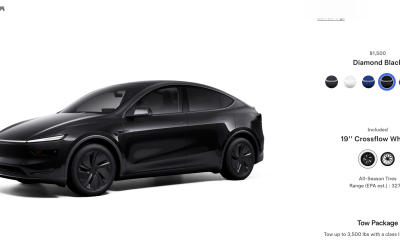
 News1 week ago
News1 week agoTesla rolls out new, more affordable trim of the Model Y Juniper in U.S.
-
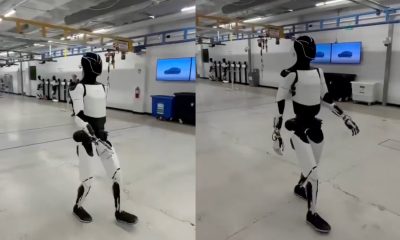
 News1 week ago
News1 week agoTesla shares Optimus’ improved walk in new update video
-

 News2 weeks ago
News2 weeks agoTesla US Gigafactories shields from Trump’s 25% Tariffs
-
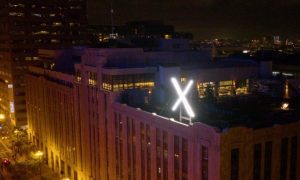
 Elon Musk2 weeks ago
Elon Musk2 weeks agoMusk says xAI has acquired X in $33 billion stock deal
-
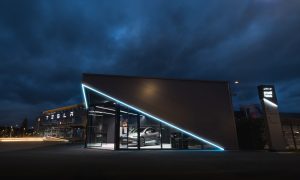
 Elon Musk1 week ago
Elon Musk1 week agoTesla Germany reports 4,935 units sold in Q1 2025
-
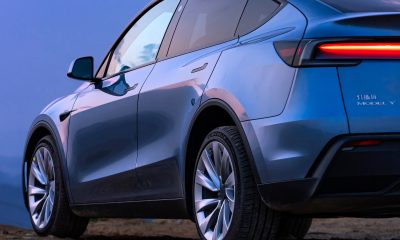
 Investor's Corner2 weeks ago
Investor's Corner2 weeks agoTesla (TSLA) shares company-compiled Q1 2025 delivery consensus
-
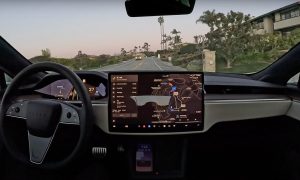
 News7 days ago
News7 days agoTesla expands Early Access Program (EAP) for early Full Self-Driving testing
-

 Elon Musk1 week ago
Elon Musk1 week agoNYC Comptroller moves to sue Tesla for securities violations

